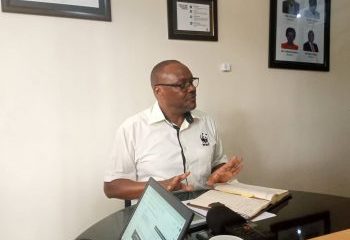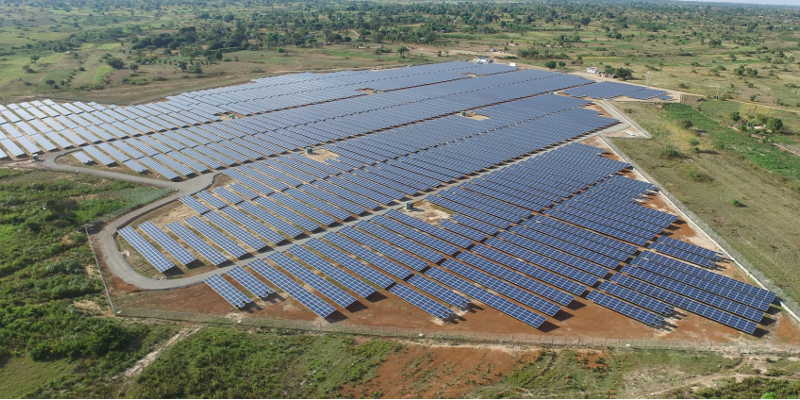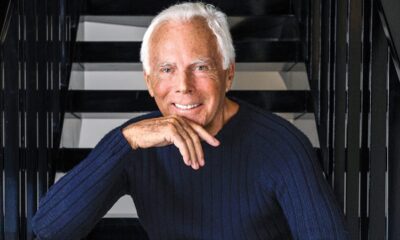News
Ordeal of suffering, starvation at Karuma project
Over one hundred people who were displaced by the Karuma hydro power project are starving, sickly, and some have died before getting compensated for their land, more than five years since they were relieved of the their land by the government of Uganda.
The most affected persons are the elderly, women and children who are among the 400 people who were affected when the government decided to displace them with the promise that it would relocate them or compensate them for their land.
With just about a year to the anticipated completion of the dam, hope is fading among the former land owners that they will ever be compensated.
Besides, over the course of the dam’s construction, some of the Project Affected Persons have clearly lived destitute lives for lack of where to grow food which was also their primary income-generating activity.
The Sunrise has learned that although the government expressed interest in compensating the affected persons, the process has dragged on for far too long and has adversely affected the victims.
Work on the 600MegaWatt Karuma Hydro Power project started in 2013 and is expected to be completed by December 2018 before the government fulfils its pledge to resettle or compensate the affected persons.
The Sunrise has also learned that some 4.2billion was earmarked for of 400 Project Affected Persons in the areas of Kuruma, Awoo in Kiryandongo district and parts of Nora in Oyam district.
Although some of the affected persons have chosen to persue the matter in courts of law, information from the government indicates the hope for compensation is still alive, even though it has taken too long, and may as a result not be adequate, considering the delays as well as failure to fully account for the assets of the victims.
Personal account
70 year old Sabina Ladu, a widow and grandmother of 9 children, is one of the 100 victims of the Karuma project whose land was taken away but is yet to receive her compensation. She says that although her land was not surveyed, nonetheless, it was registered by the Ministry of Energy and Mineral Development, the agency responsible for physical relocation of claimants to an area of their choice.
Ladu is among the many that fled the Lord’s Resistance Army (LRA) Insurgency in the 1990’s, and sought refuge with her family in Karuma where she acquired land in Awoo village with her late husband.
“My children have all perished in Karuma here and I buried my husband also in Awoo many years ago. One of my sons was killed by crocodiles when he went to fish by the river side,” Says Ladu.
“I am now an old woman with grandchildren. I cut grass to sell for food for my grandchildren. I have no land to dig to feed my grandchildren because all my land was taken away by government for the project,” adds Ladu.
She sells each bundle of grass at 3,000/= for those who thatch their houses. In a day, she can cut and ferry 2 bundles home, which she says can barely buy food for her family of seven plus her grandchildren. She says the soldiers at the park side are kind to her, adding that they sometimes help chase away wild animals like hippos as she cuts grass.
Seven of Ladu’s children have passed on and she says her only consolation was in the land that fed her grandchildren.
“I don’t think I will ever have such fertile land like the one I had in Awoo. I had cassava, sesame, millet, fruits and animals in my land. Soldiers from the barracks used to come and buy food from me. Look at me now, I don’t have what to eat yet I gave up my fertile land,” says Ladu with a shade of grief, written all over her wrinkled face.
When ground clearing and construction work begun in her area in 2013, Ladu says, she was asked to vacate her home as she awaits compensation from the government for her two acres of land.
She was given temporally shelter by a distant relative who offered two huts to accommodate her family as she hoped to be resettled by government of Uganda.
She is, however, worried that the project may end before she gets compensation or even be resettled to her own land.
“My land was not surveyed. I don’t know how much they will pay me. I am now suffering as if I had nothing of my own. I can’t even take tea or eat good food,” laments Ladu, adding that: “This project is big and about to end. I am old and may die soon because I am suffering a lot. These grandchildren of mine will remain without anything. They should either relocate me and build for me a house or give me money to buy fertile land myself,”
William Ogik, the chairperson of the Karuma-Awoo complainants association, says government ‘duped’ them into leaving their land with promises that have never been fulfilled.
“We were displaced by this project. Government promised to resettle us but that resettlement has been dodged. Nothing has been done for us. Those who were there handling us at the Ministry (of Energy) have left,” Ogik lamented without mentioning names.
He blames the LC1 of Karuma for conniving with officials from the Ministry of Energy, and covering up the plight of the Project Affected Persons.
“We know the LC1 who works at the dam project of conniving with people from the Ministry. They come and give them 50,000/= for soda and beer, then they forget about us.”
Karuma LC1 Chairperson, Severino Opiyo, however, denied the accusations, saying that he always presents issues of the Project affected persons whenever he has to.
Opiyo, adds that Ministry of Energy registered about 100 people under the Resettlement Action Plan in which land was to be acquired to resettle them.
“Those who were registered, the government was supposed to get land and construct for them houses. We have waited for so long. Some people were very old and they died.” Says Opiyo adding that no update has been given to people by the ministry about the land acquisition and resettlement of recent.
He adds that around June this year, the ministry reportedly got 200 acres of land in Nwoya district but the matter is delayed by delays to obtain land titles for the beneficiaries.
“The land owners in that area are poor and they can’t afford to process titles for such big chunks of land.” Opiyo adds.
Meanwhile, Cecilia Menya, the Acting Commissioner Electrical Power at the Ministry of Energy told our reporter on Monday that the Resettlement of Karuma Hydro Power Affected Persons is in plan and the process is ongoing.
“I know that there are vulnerable people we are going to physically resettle. We are trying as much as possible to resettle them but there are issues that sometimes arise and we are dragged back.”
She adds;”We are buying 150 acres in Oyam district; it’s an area of their choice. We are concluding the process.”
Karuma Hydro Power Project that is expected to end by December, 2018, affected communities of Karuma, Awoo in Kiryandongo district and Nora in Oyam district.
According to Article 26 of the Uganda Constitution, a land owner should be promptly and adequately compensated if government wants to start a project on such a land.
However, there is a proposed amendment to Article 26 of the 1995 Constitution which aims to make it possible for government to take possession of or acquire property upon payment of the compensation awarded by the government, while any resolution of disputes to determine the additional amount claimed by the property owner is ongoing.
Comments


























